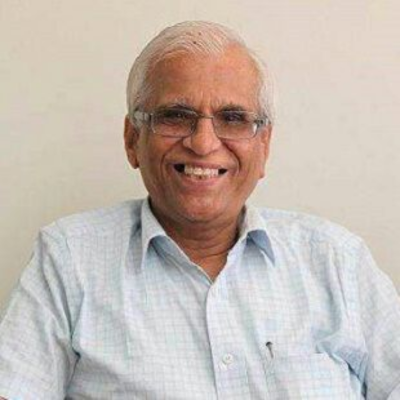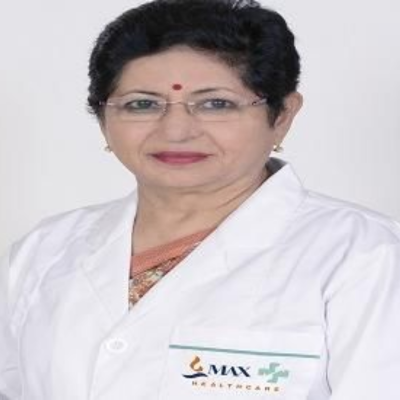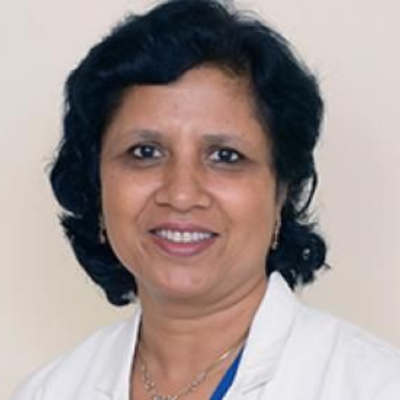The Role of Government Initiatives in Promoting Medical Tourism in India
 02 April,2025
Read More
02 April,2025
Read More
Enquire now in case of any assistance needed
 27 March,2024
27 March,2024
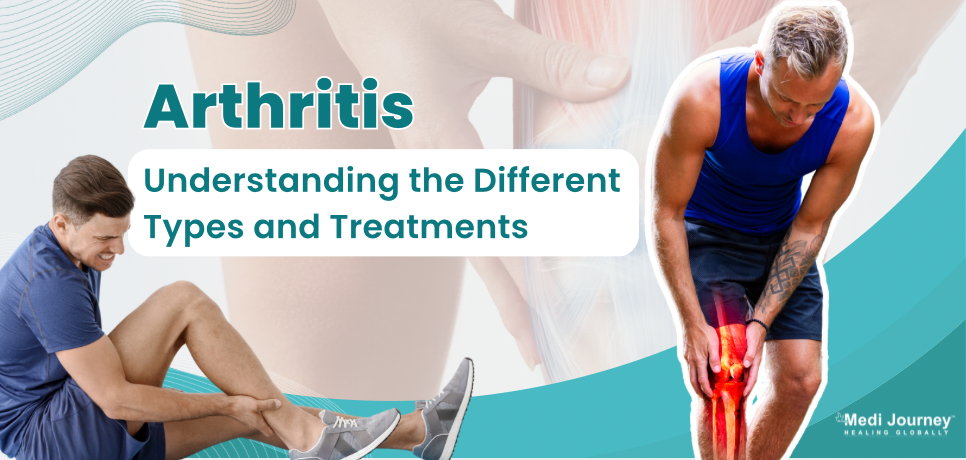
Arthritis—the word itself can strike fear into the hearts of many. Images of stiffness, pain, and a restricted life often come to mind. But for the millions of people worldwide living with various forms of arthritis, it's a daily reality. While there may not be a cure, there's so much you can do to manage the condition and live a life brimming with joy and fulfillment.
This blog is your guide to navigating arthritis. We'll go beyond managing pain and explore strategies to empower you to thrive.
Arthritis is a type of joint disease marked by inflammation. It affects people of all ethnicities, ages, and genders and is one of the key causes of disability worldwide. The condition causes redness and swelling of the joint.
A joint is where two or more bones meet. The body has various sorts of joints, such as pivot joints, hinge joints, ball and socket joints, and gliding joints. Arthritis can cause pain and stiffness/rigidity in any joint.
Common body parts where arthritis develops are –
The scientists have already discovered more than 100 different types of arthritis. Some of the most frequently diagnosed types include –

The symptoms of arthritis can be gradual or sudden, depending upon the particular type. Arthritis is a chronic disease, and consulting an orthopedic specialist becomes crucial if you have the following symptoms –
These are general signs and symptoms of arthritis. Certain types of arthritis can show specific symptoms, such as juvenile arthritis, which causes eye and skin problems, and septic arthritis, which causes fever.
Arthritis can affect anyone. However, some factors have been associated with an increased chance of developing the disease. These risk factors are –
Doctors specializing in bone diseases make the diagnosis of arthritis. The first step towards diagnosing arthritis is a physical exam. The orthopedic doctor will ask you about symptoms and check the affected joint's range of motion and the pain's intensity.
Further, they will order laboratory tests, which may include –
Imaging tests for diagnosing different types of arthritis are –
There is no cure for arthritis to date, but your orthopedic doctor will help you find the best treatment to manage your symptoms. The treatment plan depends on the cause of the arthritis, its type, and the affected joint. Common treatment modalities for arthritis are –
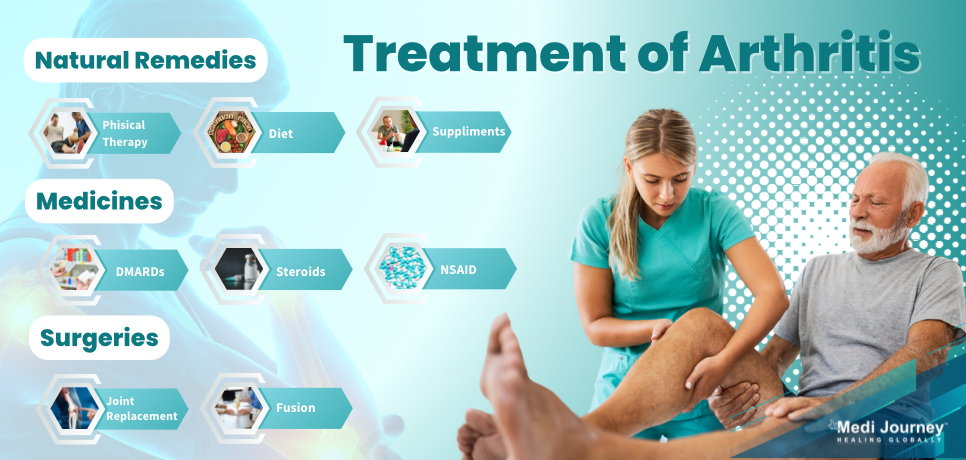
You are the captain of your ship when it comes to managing your arthritis. While your doctor's guidance is essential, you should actively participate in your healthcare journey. Here's how:
Regular physical activity strengthens muscles that support your joints, improves flexibility, and reduces pain. Here are some key points to remember:
What you put on your plate directly impacts your arthritis. Embrace an anti-inflammatory diet rich in:
Sleep is a necessity for managing arthritis and overall health. Here's how to prioritize a good night's sleep:
Arthritis – the word itself can create images of achy joints and limited mobility. Encompassing over 100 conditions, it's a common culprit behind joint pain, affecting millions worldwide. While there's no cure, understanding arthritis and taking charge of your health empowers you to manage it effectively. Talk to an orthopedic doctor who can guide you through the treatment plan and help you have a better quality of life.
Doctor of Pharmacy
Dr. Deepanshu Siwach is a skilled clinical pharmacist with a Doctor of Pharmacy degree.?He has 4+?years of experience and has worked with thousands of patients. He has been associated with some of the top hospitals, such as Artemis Gurgaon.
Director
Orthopedic and Joint Replacement Surgeon
Aakash Healthcare Super Speciality Hospital, Dwarka, New Delhi
Dr. Aashish Chaudhry is amongst the best Orthopedic Surgeons, with over 23 years of experience....
Senior Consultant
Medical Oncologist
Nanavati-Max Super Speciality Hospital, Mumbai
Book Appointment WhatsApp UsSenior Director
Gynecologist and Obstetrician, IVF Specialist
Max Super Speciality Hospital, Shalimar Bagh, New Delhi
Book Appointment WhatsApp UsSenior Director
Gynecologist and Obstetrician, IVF Specialist
Max Smart Super Speciality Hospital, Saket, New Delhi
Book Appointment WhatsApp UsSenior Director
Gynecologist and Obstetrician
Max Smart Super Speciality Hospital, Saket, New Delhi
Book Appointment WhatsApp UsSenior Director
Gynecologist and Obstetrician
Max Smart Super Speciality Hospital, Saket, New Delhi
Book Appointment WhatsApp UsSenior Director
Gynecologist and Obstetrician
Max Smart Super Speciality Hospital, Saket, New Delhi
Book Appointment WhatsApp UsFill up the form and get assured assitance within 24 hrs!
The Art of Effective Communication
 24 January,2025
Read More
24 January,2025
Read More
Trusted by Patients
"I am Asim from Bangladesh and was looking for treatment in India for neuro. I visited many websites to get the complete information regarding the treatment but I was not satisfied as I was getting confused. In the meanwhile, one of my friends suggested I seek help from Medi Journey as he experienced his medical journey very smoothly and was satisfied with it. They have filtered the top 10 doctors as per experience, the success rate of surgery & profile, so it helps us to choose the best treatment in India. "
"For my knee surgery, Medi Journey guided me to BLK Hospital where I received exceptional care. The team's support and the expertise at BLK Hospital exceeded my expectations. Thank you Medi Journey for making my medical journey stress-free. "
"I came from Iraq for my granddaughter's eye surgery in India facilitated by Medi Journey, due to critical cases they advised us to get a second opinion from the different hospitals before going to surgery. Finally, we went to Fortis Escort Hospital, which helped us to get more confidence for diagnosis. Fortis Escort Hospital has the best eye surgeon team with the latest instruments. Thanks to all team members for providing a high-quality treatment in India at an affordable cost. "
"I came for my hair transplant in India, before coming I was so confused about choosing the best clinic and surgeon for me. But thanks to God one of my friends had a hair transplant in India through Medi Journey. He recommended me to go with them. I am completely happy with my experience with them. They were always very fast in their responses to me. the success rate of my hair transplant surgery is 100%."
"Artemis Hospital, suggested by Medi Journey, turned out to be a great choice for my treatment. The personalized assistance and medical care were exceptional. I'm grateful to Medi Journey for guiding me to a hospital that perfectly matched my needs. Highly recommended! "
"I came from Afghanistan for my treatment in India at Jaypee Hospital, Noida. I had a fantastic experience with Medi Journey. Kudos to them for their incredible support during my medical journey. They not only took care of all the logistics but also connected me with a fantastic healthcare team. Efficient, caring, and highly recommended for a hassle-free medical tourism experience."
"I am Adam from Kano, Nigeria, one of my friends from Nigeria was facilitated by Medi Journey, and he recommended us to go with them. I sent my all reports to them and within 48 hours they reverted with 4 options from different hospitals. They helped me to get a Visa letter from the hospital, arrange pick-up from the airport, and book a hotel for me. Their team is very honest and throughout our stay in India they are with us they are caring for us like his family members. BLK Hospital is the best hospital in India with a top surgical oncologist surgeon team, a very advanced OT, and a Radiotherapy department. I wish more success to Medi Journey. "
"Great experience at the Max Hospital for my spine surgery and was successfully done. I thank my neurosurgeon and his entire team. I recommended all of my country's people to Medi Journey for treatment in India, they choose the best hospital, the best doctors, and the best cost for patients."
"I came to India from Dhaka, Bangladesh for my father-in-law's cardiac surgery at Fortis Hospital. I was confused about choosing the best surgeon for him before coming, but their team helped me to choose the best hospital and best cardiac surgeon in India with very good cost and 100% success rate of surgery. I am very happy with the services, really they make my journey so comfortable that make me feel at home. Thanks again and I like people to choose "Medi Journey" as your travel guide. "
"I am Mohammad from Bangladesh came to India for my general health checkup. Medi Journey offers me the complete package including Pick-up from the airport, hotel services, and 24-hour assistance. They guide you to choose the best hospital in India, the best cost of treatment with top-most doctors and give you complete information about hotel booking, and pick-up from the airport before coming to India They have the best team to help. Always choose Medi Journey for your treatment in India."
